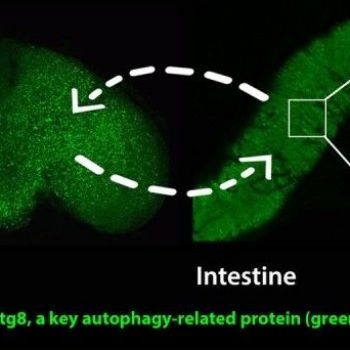

10 years ago
4
Can We Live Forever?
Jeanne Calment, who died at 122 years of age, lived longer than anyone else in recorded history. She wasn't a health nut either. In fact, she smoked cigarettes for nearly 100 years and ate 2 pounds of chocolate every week. Can we all be like Jeanne Calment? Is it even possible to live longer at all? What about forever? What would this mean for life as we know it?
Continue Reading
Additional Contributions:



























Join the Discussion
as someone who is not a scientist (I am an engineer though) and has read a lot of science fiction, I think the most plausible 'live forever' scenario is not a drug or implant or surgery to replace body parts, or embryonic genetic therapy/modification. I think that when we develop a method to copy a mind from one brain to another will be the invention of human immortality.
however, this invention will probably cause the following problems.
1. A caste society broken up between donors and immortals.
2. The whole problem of 'a copy of a copy of a copy of a copy' will eventually break down. However, one could argue that every time someone is copied, that's a fresh mind with new experiences. However, what will happen to the older original experiences over time?
3. What makes you you? Are you your genes? Are you your mind? Are you a combination of the two? If you take your mind and transfer it to a body with different genes, will you be the same person?
Personally, I think that's one of the more less likely scenarios when it comes to true life extension due to the complexity of the human brain / mind and how they work together to form our conscious mind (we still don't even know anything about it). I think that we will slowly (maybe over 60-70 years) continue to extend our lives using science, medicine and other methods until we are able to perfect other much more complex procedures. Ultimately converting our brain into non-biological over a span of months using nano technology will likely be able to move our minds onto another medium that doesn't rot / break down or die. Definitely a fascinating subject and also extremely complex and filled with theories and assumptions.
I must have thought about this a million times. Even if the transfer was successful, even IF all memories were intact as well as your characteristics and habits how do you prove that this new person is really "you" and not just a perfect copy that even it thinks its the "real you". There really is no way to tell, the world will go on thinking the process was a success even though the original "you" had died during the procedure. Personally during a procedure like this the only thing I would care about is the "original me", because that "original me" is the conscious mind I want to preserve. If we invent a way to live forever, but during the process the original person dies and only a copy that thinks it's the original person remains then we have failed in creating true mortality.
I think the only sure way of achieving true immortality (while preserving the original mind) is if we are slowly, painstakingly converted into...
Read FullThis is reasonable. I think in a few hundred years it may be common for people to reach the age of 200 or 300. I don't think there is anyone alive today that will be alive in 2300... but maybe 2200. I did read an interesting theory a few years ago stating that human life expectancy hasn't really changed all that much in the past 300 years. What has changed is our infant mortality rate. The life expectancy for people who make it to adulthood hasn't really changed much. So maybe that means the human body sans modifications really does have a hard limit.
My point was meant to be taken two ways.
1. If you take your mind and transfer it to a body with different genes, will you even have the same characteristics and habits? How many characteristics and habits are genetic and how many are a product of the mind?
2. your point. if everything is transferred and you are exactly the same except for the body/genes, how do you prove that you are you?
I think that we need to determine what the capacity for the brain is. Then we need to determine if that capacity can be improved organically. We also need to determine if it can be improved upon with technology. Then we need to determine if it SHOULD be improved upon with technology. This is explored in many science fiction films/books. Have you seen Transcendence with Johnny Depp?
Read FullI have seen Transcendence and while I found it lacking depth I was glad that a movie like that came out, lets hope the next movie about immortality and AI will be a bit more in depth. As for "Old Mans War", nope I haven't read that particular book, I will need to read it one of these days if you think its good. I agree with you that this topic is vast, and we can easily get lost in the details. I guess time will tell on what makes immortality possible, if its possible at all.